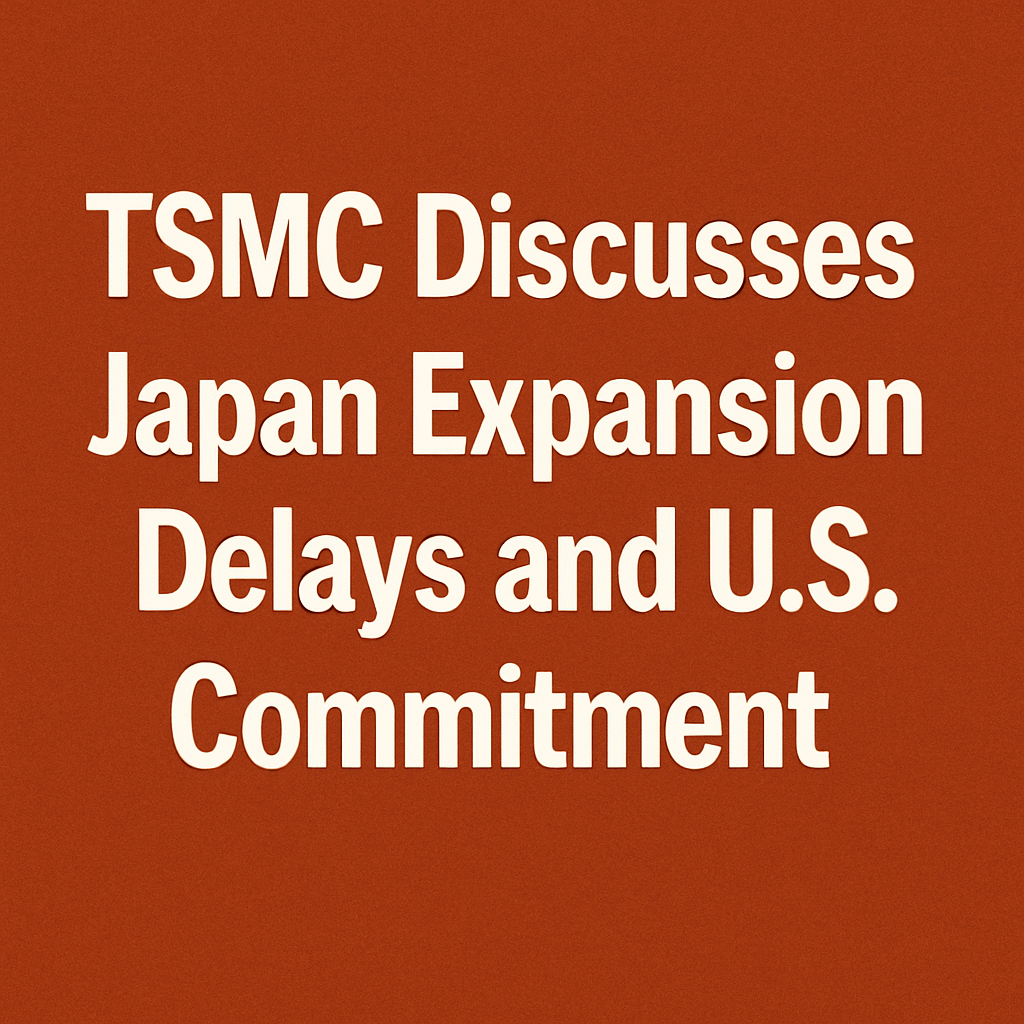TSMC Discusses Japan Expansion Delays and U.S. Commitment

Taiwan Semiconductor Manufacturing Co. (TSMC) chief executive officer C. C. Wei has recently highlighted logistical challenges impacting the company’s expansion in Japan. While speaking at a shareholders’ meeting in Hsinchu, Taiwan, Wei attributed the slight delays in developing TSMC’s new facility in southwest Japan to worsening traffic conditions.
Japan’s Semiconductor Ambitions and TSMC’s Role
TSMC’s plan to construct its second factory in Kumamoto Prefecture is pivotal for Japan’s aspirations to regain a leadership position within the global semiconductor market. This facility is a critical component of Japan’s strategic response to increasing international competition, particularly from China and the United States. From the outset, TSMC has benefitted from various accords with the Japanese government aimed at bolstering local semiconductor production through a lens of national security and economic independence.
Infrastructure Concerns and Labor Shortages
The challenges highlighted by Wei extend beyond mere traffic issues. The influx of workers from TSMC’s initial plant has put a strain on rural infrastructure, signaling significant hurdles in accommodating the required workforce for such a large-scale project. Japan, dealing with an aging population and increasingly tight labor market, is facing difficulties in attracting skilled workers, complicating TSMC’s timeline for completion. Additionally, the minimum construction period and necessary regulatory approvals for expanding infrastructure, such as road widening projects, hamper progress and could lead to significant project delays.
U.S. Expansion Plans and Diplomatic Engagement
Amid these domestic challenges, Wei reaffirmed TSMC’s ambitious commitment to invest an additional $100 billion in its manufacturing operations in Arizona over the next five years. This substantial investment underscores TSMC’s strategy to diversify its production capabilities and mitigate geopolitical risks associated with its reliance on Taiwan.
Wei characterized his recent interaction with U.S. President Trump as constructive, emphasizing that Trump encouraged TSMC to “do your best.” Despite this positive tone, Wei cautioned that achieving the anticipated ramp-up in Arizona would be “very, very difficult,” primarily due to ongoing labor shortages and logistical issues in the construction phase.
Market Reaction and Future Outlook
Experts in the semiconductor space underscore the importance of TSMC’s commitment to high-end chip production, particularly as demand continues to thrive for cutting-edge technologies. The continued need for Nvidia’s advanced AI chips, amidst escalating geopolitical tensions, remains a significant driver behind TSMC’s strategic investments. However, uncertainties surrounding future demand for AI-related components, possibly exacerbated by changing market dynamics and fluctuations in spending from major tech firms, remain a point of contention among investors.
Global Semiconductor Landscape and TSMC’s Strategic Framework
The recent semiconductor shortages experienced during the pandemic have prompted both governments and companies to reassess supply chain vulnerabilities. TSMC, recognized as the world’s largest contract chipmaker, plays a pivotal role within this ecosystem, feeding into the production chains of major players such as Apple Inc. and Nvidia Corp. As TSMC navigates these complexities, the company continues to evaluate strategic opportunities, including the potential establishment of a production facility in the United Arab Emirates, although no immediate plans have been confirmed.
Conclusion
In summary, while TSMC aims to bolster its manufacturing capabilities in both Japan and the United States, it must navigate significant logistical challenges and labor market constraints. The ongoing geopolitical tensions may complicate future investments and production strategies, making TSMC’s future trajectory one to watch closely for stakeholders across the global semiconductor landscape.
About the Authors
Debby Wu
Bloomberg